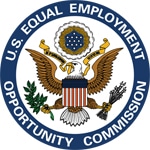
Railroad subjected class of female workers to unlawful physical abilities testing, federal agency charges

According to the EEOC’s lawsuit, since at least 2008, CSX has conducted isokinetic strength testing as a requirement for workers to be selected for various jobs. The EEOC said that the strength test, known as the IPCS Biodex, causes a discriminatory impact on female workers seeking jobs as conductor, material handler/clerk, and a number of other job categories. CSX purports to use the IPCS Biodex to measure upper- and lower-body muscle strength. The EEOC charges that female workers who have taken the test pass at significantly lower rates as compared to their male counterparts.
The EEOC also said that CSX has used two other employment tests, one purporting to measure aerobic capacity and one seeking to test arm endurance, as a requirement for selection into certain jobs, and female workers also passed those tests at significantly lower rates as compared to male workers.
According to the EEOC’s complaint, CSX declined to hire a class of women workers for a range of jobs they sought because they failed these tests, and the effect of company testing practices has been to discriminate against women workers because of their sex.
Such alleged conduct violates Title VII of the Civil Rights Act of 1964, which prohibits discrimination based on sex. Title VII prohibits employment practices such as tests that are administered to all applicants and employees regardless of sex but that cause a discriminatory effect or impact on persons of a particular sex. Employers using tests for employment selection purposes that cause a significant discriminatory effect or impact based on sex, or any other covered basis, must prove that those practices are necessary for safe and efficient performance of the specific jobs for which the tests are used. Even if such necessity is proven, such tests are prohibited by Title VII if it is shown that there are alternative practices that can achieve the employers’ objectives but have a less discriminatory effect.
The EEOC filed suit (U.S. EEOC v. CSX Transportation, Inc. Case No. 3:17-cv-03731) in U.S. District Court for the Southern District of West Virginia in Huntington after first attempting to reach a pre-litigation settlement through its administrative conciliation process. The agency’s lawsuit seeks injunctive relief and court-ordered job instatement as well as payment of monetary remedies in the form of past and future lost wages and benefits to the class of female workers adversely affected by CSX’s testing.
“The EEOC has prioritized enforcement actions to eliminate discriminatory barriers to the employment of women and other workers,” said EEOC Regional Attorney Debra M. Lawrence. “Therefore, employers should carefully examine their employment practices, such as tests and other selection procedures, to make certain that those practices are not causing an unlawful disparate impact because of sex or another covered demographic category.”
EEOC District Director Spencer H. Lewis, Jr. added, “The EEOC will take vigorous action if an employer’s selection procedure has an adverse impact on women or members of any other demographic group. Companies must refrain from using a test causing adverse impact unless it is job-related and consistent with business necessity. Even if a test passes that standard, an employer must adopt any comparably effective alternative practices that have less adverse impact.”
Eliminating barriers in recruitment and hiring, especially class-based recruitment and hiring practices that discriminate against racial, ethnic and religious groups, older workers, women, and people with disabilities, is one of six national priorities identified by the Commission’s Strategic Enforcement Plan.
The lawsuit was commenced by the EEOC’s Pittsburgh Area Office, one of four component offices of the agency’s Philadelphia District Office. The Philadelphia District Office has jurisdiction over Pennsylvania, Maryland, Delaware, West Virginia and parts of New Jersey and Ohio. Attorneys in the Philadelphia District Office also prosecute discrimination cases in Washington, D.C. and parts of Virginia.
According to company information, CSX Corporation, together with its subsidiaries based in Jacksonville, Fla., is one of the nation’s leading transportation suppliers, encompassing about 21,000 route miles of track in 23 states, the District of Columbia and the Canadian provinces of Ontario and Quebec.
The EEOC advances opportunity in the workplace by enforcing federal laws prohibiting employment discrimination. More information is available at www.eeoc.gov.
Related News
- FRA Issues Grade-Crossing Safety Advisory
- Amtrak To Give SMART-TD Members Holiday Bonuses
- Federal judge orders release of Kilmar Abrego Garcia from immigration detention — General President Coleman responds
- SEPTA Strike Avoided: Strong Agreement Secured
- DC attorney general secures $1.5 million from construction company for wage theft, worker misclassification
- Posthumous Retirement Ceremony Honors Lost Brother
- SMART-TD: Built by Members, Driven by Your Voice
- Conductor, Volunteer Firefighter Injured and Needs our Help
- Local 85 members organize 5K to address mental health, suicide in the construction industry
- FRA Doubles Our Risk By Reducing Track Inspections